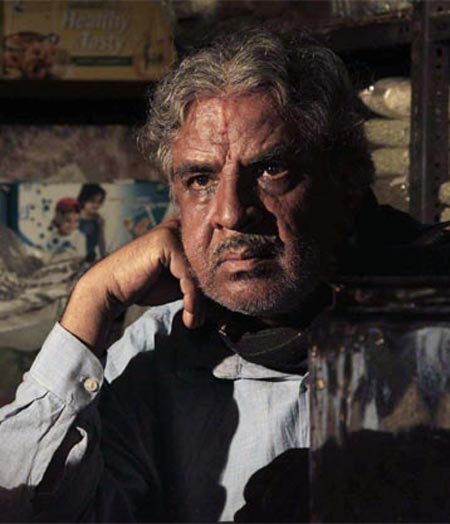
Bharath Stores directed by P Seshadri is the only Kannada film selected for the Indian Panorama section at the ongoing International Film Festival of India in Goa.
Seshadri won the National Award earlier this year for the seventh time.
The film will be screened at the festival for the second time today (Wednesday, November 27).
Bharat h Stores is about the emergence of big organised retail businesses that spell doom for small shopkeepers.
It won the best regional film award and its lead actor, Dattatreya, got a special mention from the national jury for his sterling performance.
In this interview, Sheshadri talks about the film, the National Award and what triggered the idea for the film.
What was the response to the film at the Goa festival this year?
The response has been quite good. We saw international delegates, comprising about 10 per cent of the capacity, attending the film’s screening.
Goans, students and people from Karnataka both settled in Goa and those who travelled to attend the festival have patronised Bharath Stores.
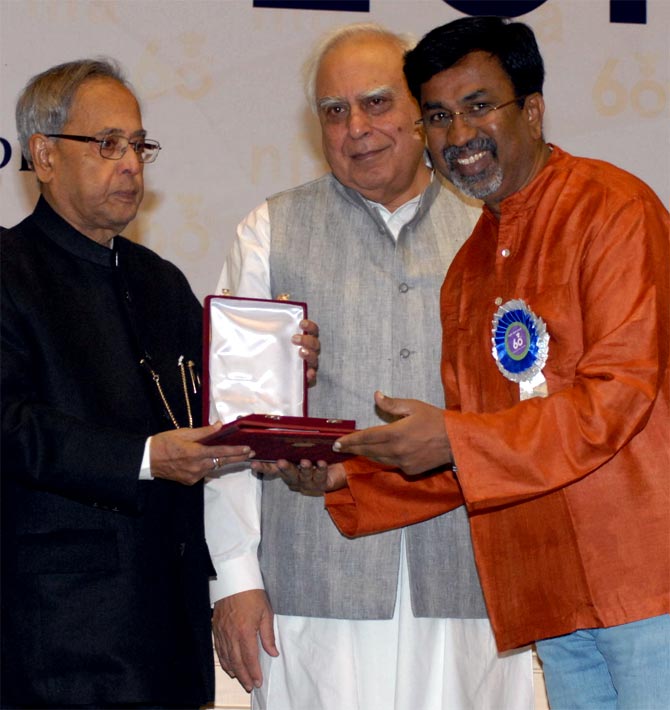
What do you have to say about how the festival is being conducted?
I say that the Directorate of Film Festivals and the National Film Development Corporation (NFDC) are not working in close co-ordination with each other despite being part of the same ministry.
I don’t understand why film-makers whose films are being screened in the Indian Panorama section are not allowed to be part of NFDC’s Film Bazaar.
It is ridiculous for us to pay Rs 10,000 to be part of the Film Bazaar when the directorate should be promoting the cream of Indian cinema automatically at the Bazaar as our films are part of the Panorama section.
What is the way out then?
I request the Directorate to screen films chosen for the Indian Panorama section at the Film Bazaar as well. There should be some link between the Directorate and the NFDC.
We cannot be just marketing films that are screened at the Bazaar and not allow Panorama films to enter the Bazaar without paying Rs 10,000.
Also, short films and documentaries are being slotted together for screening and viewers interested in one of the two are forced to sit through both.
How does one expect the audience to sit through four hours and have the same kind of interest in watching the film?
How did you feel when you won the National Award for the seventh time?
I am happy and at the same time scared about what I should be doing when it comes to my next film projects.
But, I am unhappy that my reaction to winning this award was twisted by the media. I had only said that I expected an award for this film. Is it wrong to expect good marks after appearing for an examination?
People in the media thought that I knew that I would get an award. They got me wrong.
They misconstrued this statement of mine as arrogance or someone who lobbies to get the award. Probably, if I had said that this award came as a surprise, journalists would have liked it.
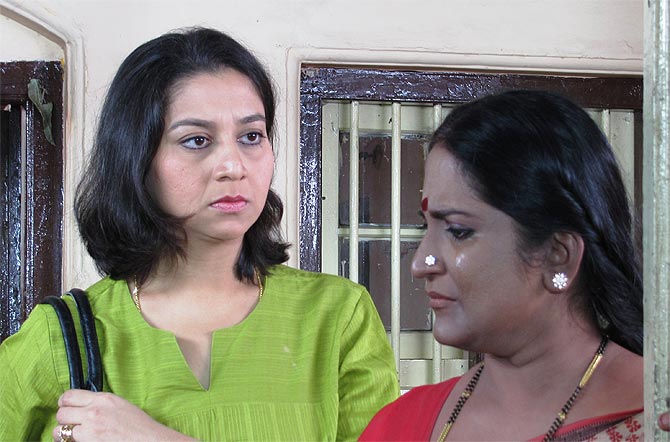
What does the award mean to you?
I respect the jury’s decision to give my film national recognition as a National Award carries money. If we don’t get financial support from the government, it will be difficult to make such films.
I would love to make big budget films but the market system is not encouraging.
I am happy to be making such meaningful cinema. There is a social responsibility to make meaningful films. I may not be able to reach a big audience but there is a good crowd who patronise such films.
We have national channels telecasting such movies and there is an audience for them.
Why do you not cast big stars in such movies?
I would love to do that and I have made approaches to several stars, but they have politely refused for various reasons.
Today, more than 50 per cent of the film budget goes towards remuneration of stars and artistes. Producers are left with less than 40 per cent of the earmarked money to produce the movie.
Stars are crowd pullers and producers have to bear huge expenditure on costumes and how a hero dresses or holds a cigarette. That’s not cinema to me.
Cinema is a powerful medium. It has a language, culture and some responsibility towards society.
I don’t agree when people say awards should be given to those movies that are popular and watched by many. There are some objectives for National Awards and people should not take them lightly.
There are various other popular awards where our films are not allowed.
How did you hit upon the story idea for Bharath Stores?
When I came to Bangalore in 1985 I used to commute by bus from the Central Bus Station.
I was curious to know the landmarks by whose names the bus stops were known. There was one bus stop which was called Nirmala Stores.
I was curious to see the shop after which the bus stop was named. No shop existed by that name. No one knew why the bus stop was named after the shop, including the bus conductors.
I found a small shop by that name that had downed shutters. There was no special meaning to this incident. But, somewhere this incident remained at the back of my mind.
I never ever thought I will be a director one day or get into films.
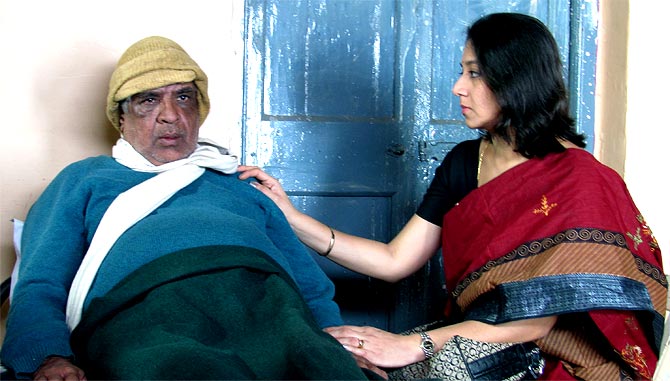
When did you decide to make a film on the subject?
When the government announced its decision to allow foreign direct investment in retail, there was a lot of discussion in support of and against the move in the media.
I watched all these debates with rapt attention. One day, when I went to drop my son off to his class, I saw a small shop downing its shutters with its entire lustre lost. That’s when the idea of making this film germinated in my mind.
How did you go about sourcing the facts?
In those initial days of my stay in Bangalore, I remember a girl used to buy groceries daily for 25 paise from a petty trader out of which she used to save five paise that used to be credited into her account.
At the end of the month, she used to save about Rs 2. All these thoughts came to my mind.
I also met and interviewed petty traders who had either closed shop or are still continuing to do business. I myself witnessed so many examples of small shops downing their shutters unable to withstand competition from the bigger stores.
I began to question what we have gained and what we have lost because of mushrooming of these big organised retail marts in the country.
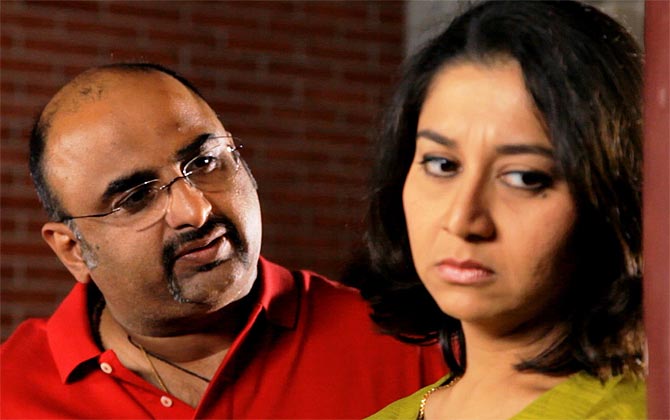
You have not touched the business aspects of retail trade in the film.
I do not know the business aspects of the trade. I have only tried to present the problem through one protagonist who gets displaced from his prosperous heyday due to competition from the big stores.
It is an emotional play on how an old system makes way for a new one that lacks a humane approach.
The government’s decision to allow FDI in multi-brand retail was just a trigger. Ever since India liberalised its economy, we have seen gradual changes in the way we shop and buy things.
It is debatable what it has done to our society. The film talks about the whole business objectively and has an emotional connect.
I have used the title of the film as a metaphor for the whole country which can be likened to a shop.
What do you want to say through the film about FDI flowing into the retail business?
Big fish will gobble the small ones. We have already seen that happen. With big chains from the US evincing interest in investment, we can say the whales will eat these big fish.
I am not saying that the small traders numbering about six crore will go out of business overnight. But we will definitely witness a system being destroyed and displaced to be replaced by a new system.
Human relations will also undergo a huge change. The future of small and petty traders is bleak.